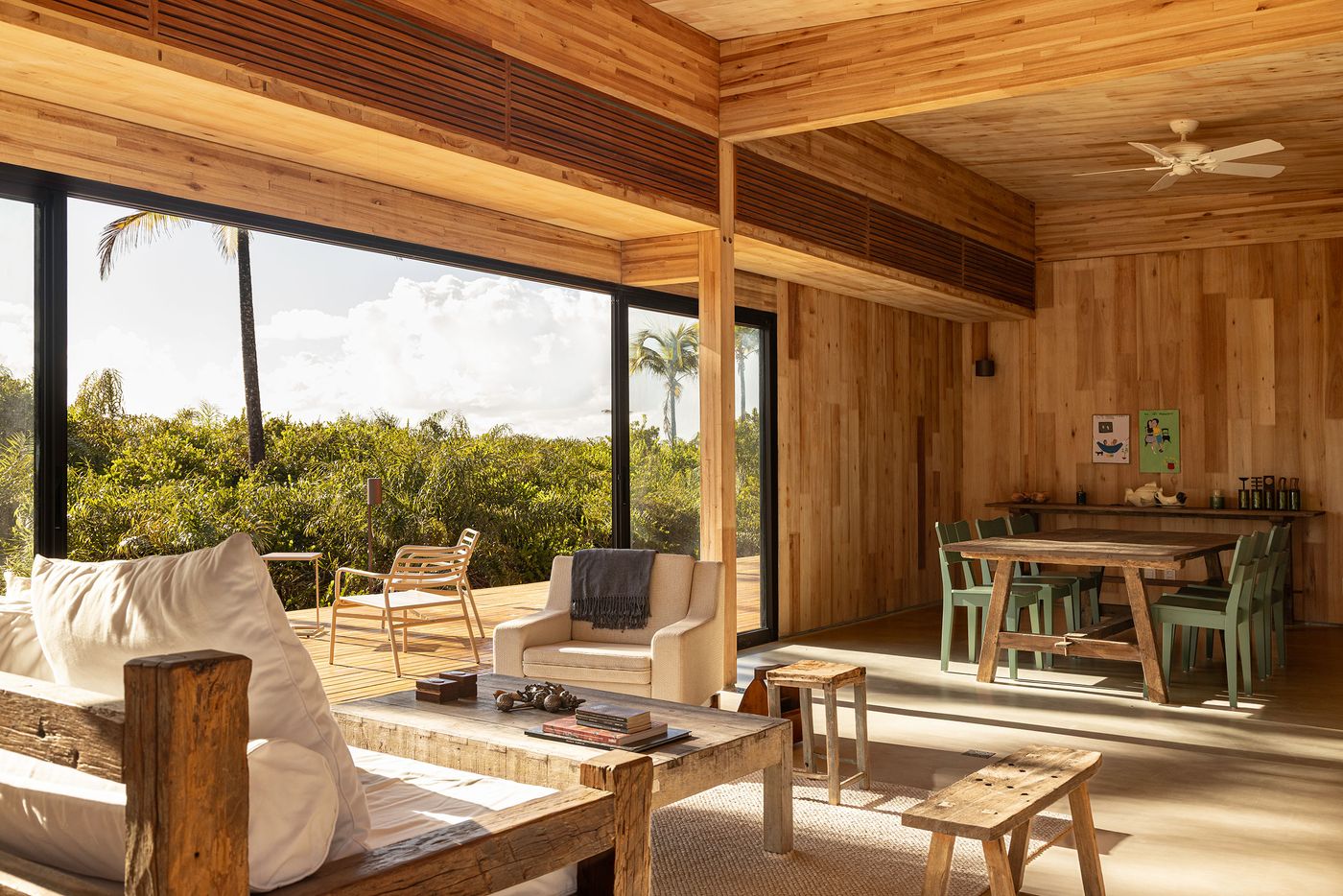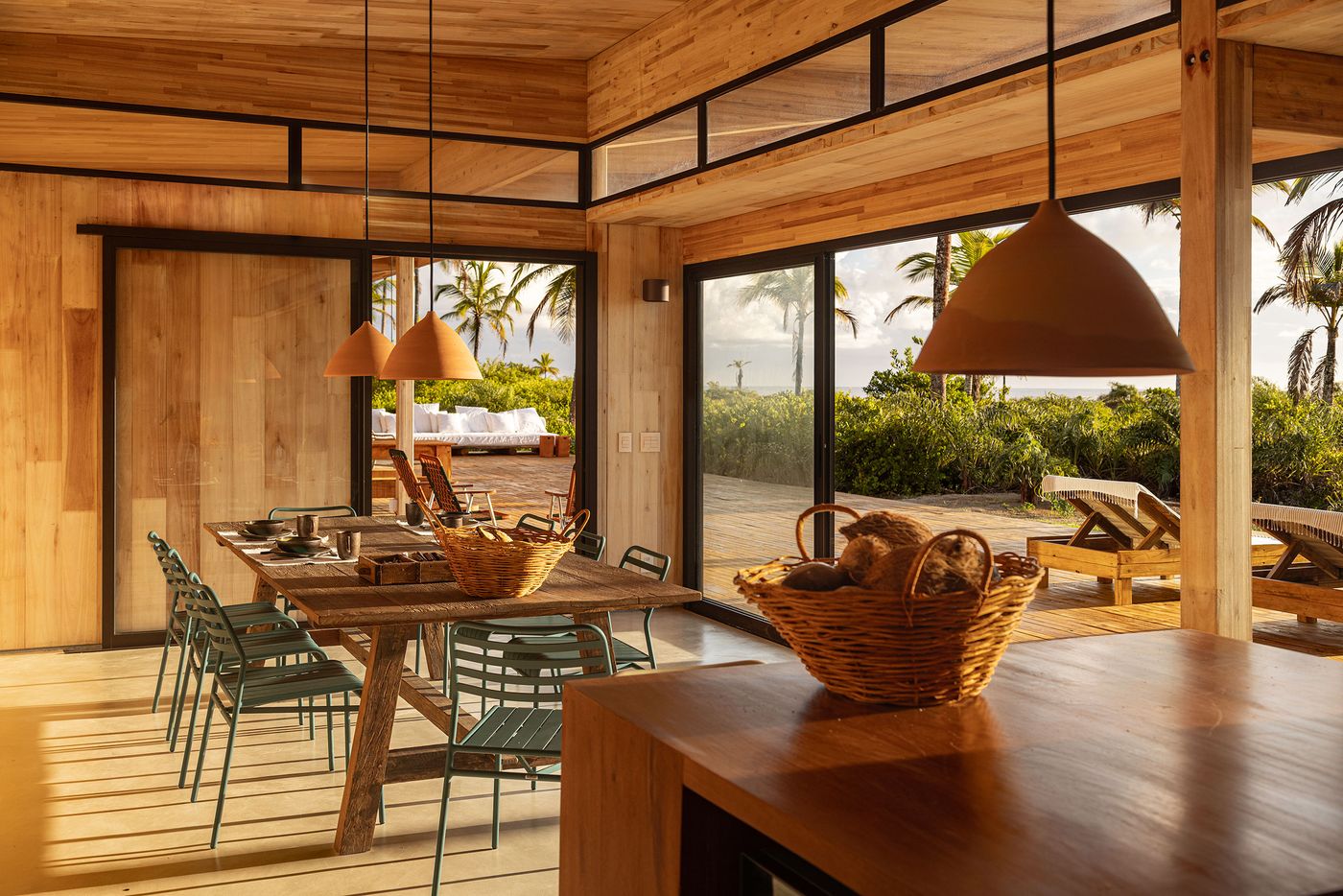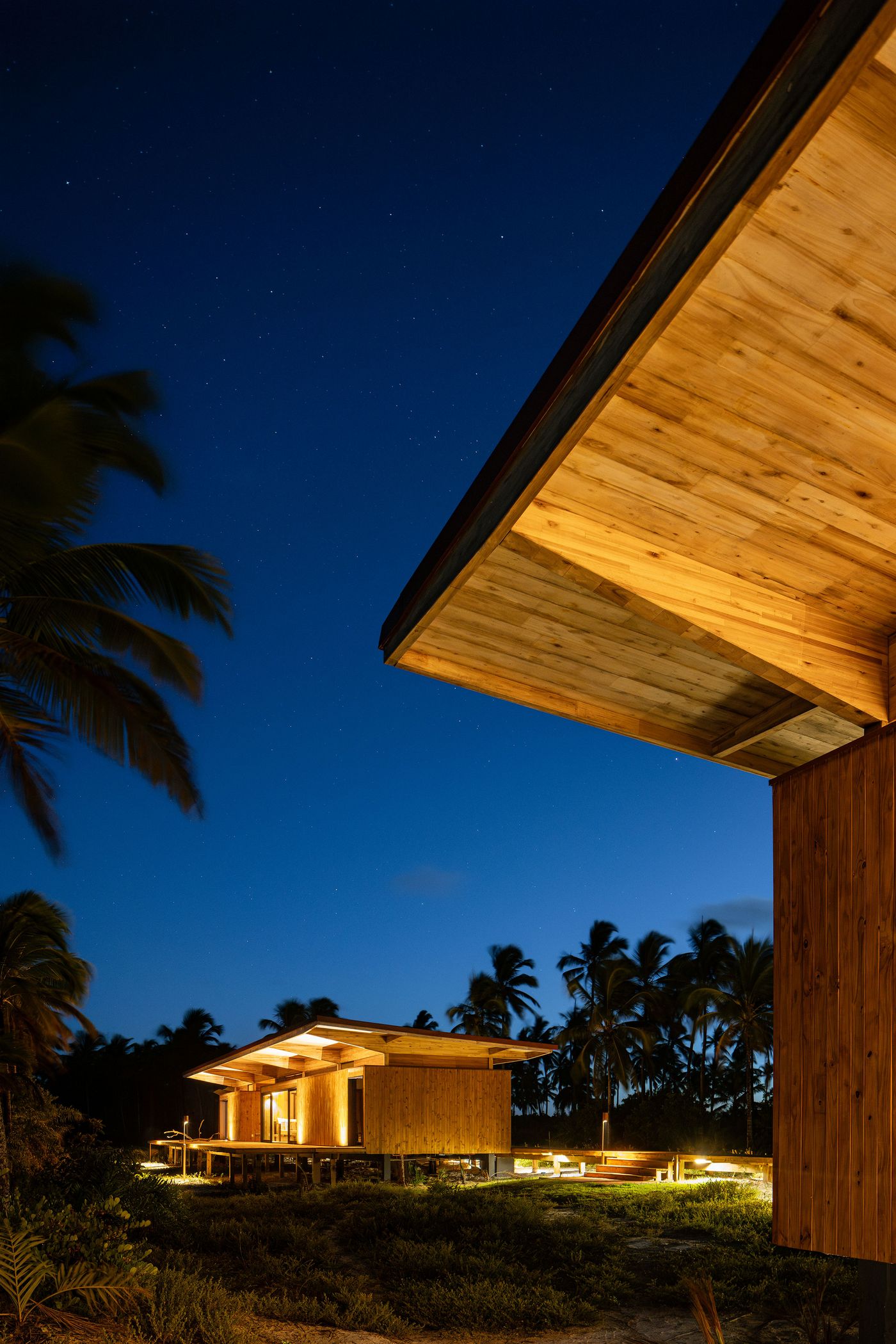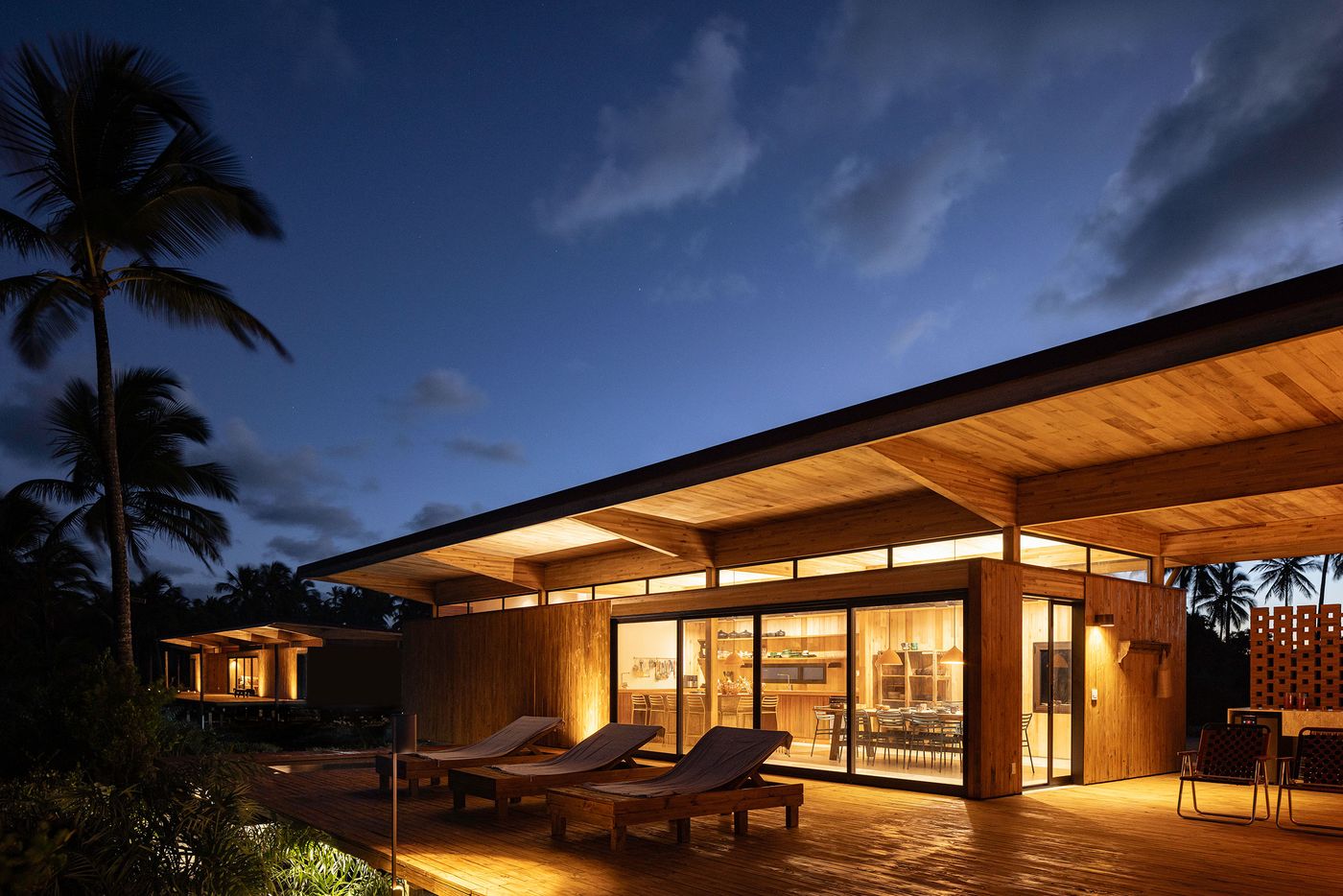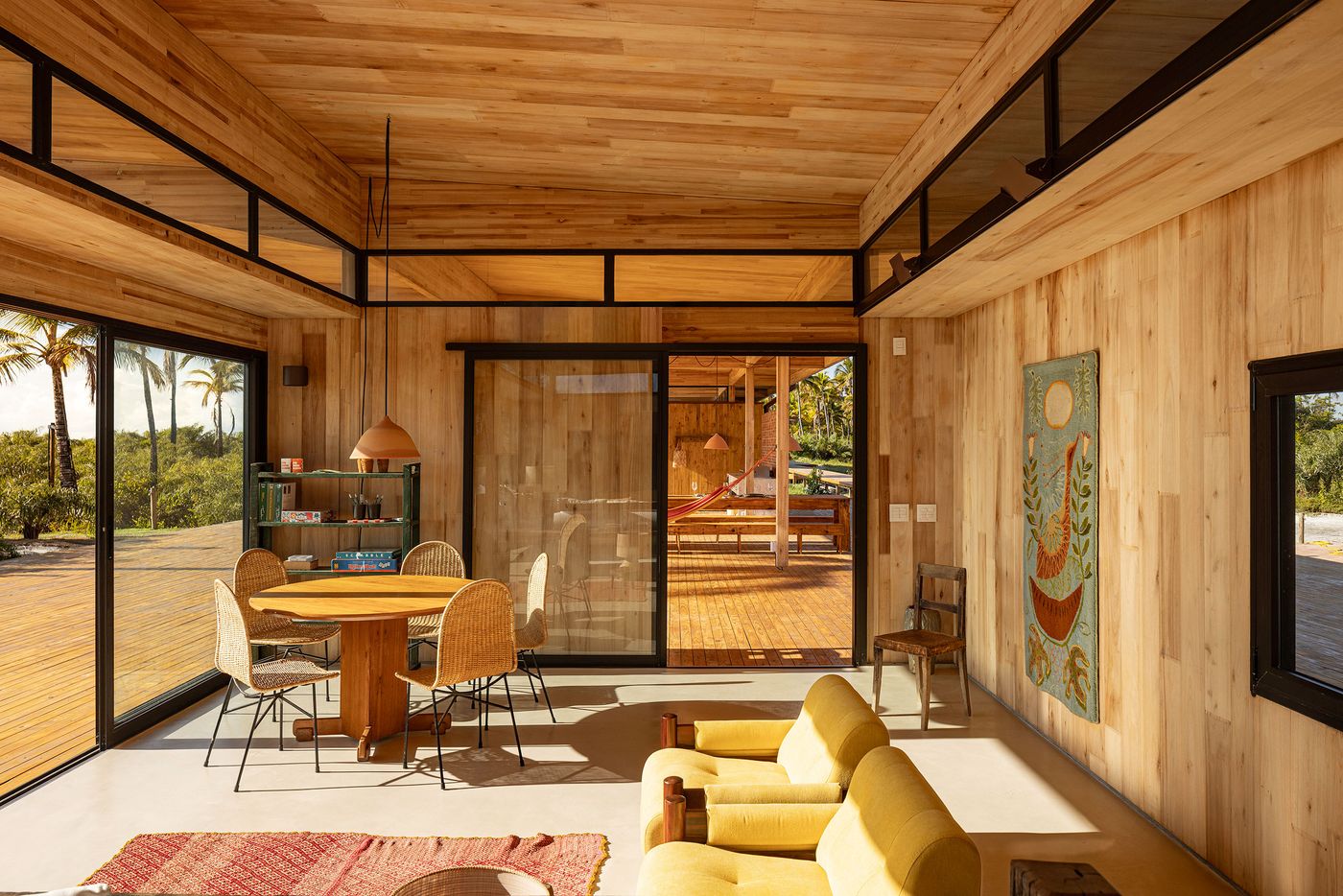
Modular Bahia: A Prefabricated Tropical Retreat in Perfect Synch with Nature
Words by Eric David
Location
Bahia, Brazil
Modular Bahia: A Prefabricated Tropical Retreat in Perfect Synch with Nature
Words by Eric David
Bahia, Brazil
Bahia, Brazil
Location
Tucked between the Atlantic Ocean and a meandering river on a palm-dense peninsula in southern Bahia, Brazil, this new-built tropical retreat dissolves into its lush surroundings rather than disrupting them. Designed by Brazilian architects UNA barbara e valentim as a trio of low-slung timber volumes housing two private houses and a shared pavilion, the development sits lightly on the terrain, connected by raised walkways and enveloped in coconut groves. At first glance, it’s all openness and ease, but beneath the relaxed exterior lies a rigorously conceived modular system that reimagines how to build sustainably, especially when it comes to more sensitive, off-grid locations.
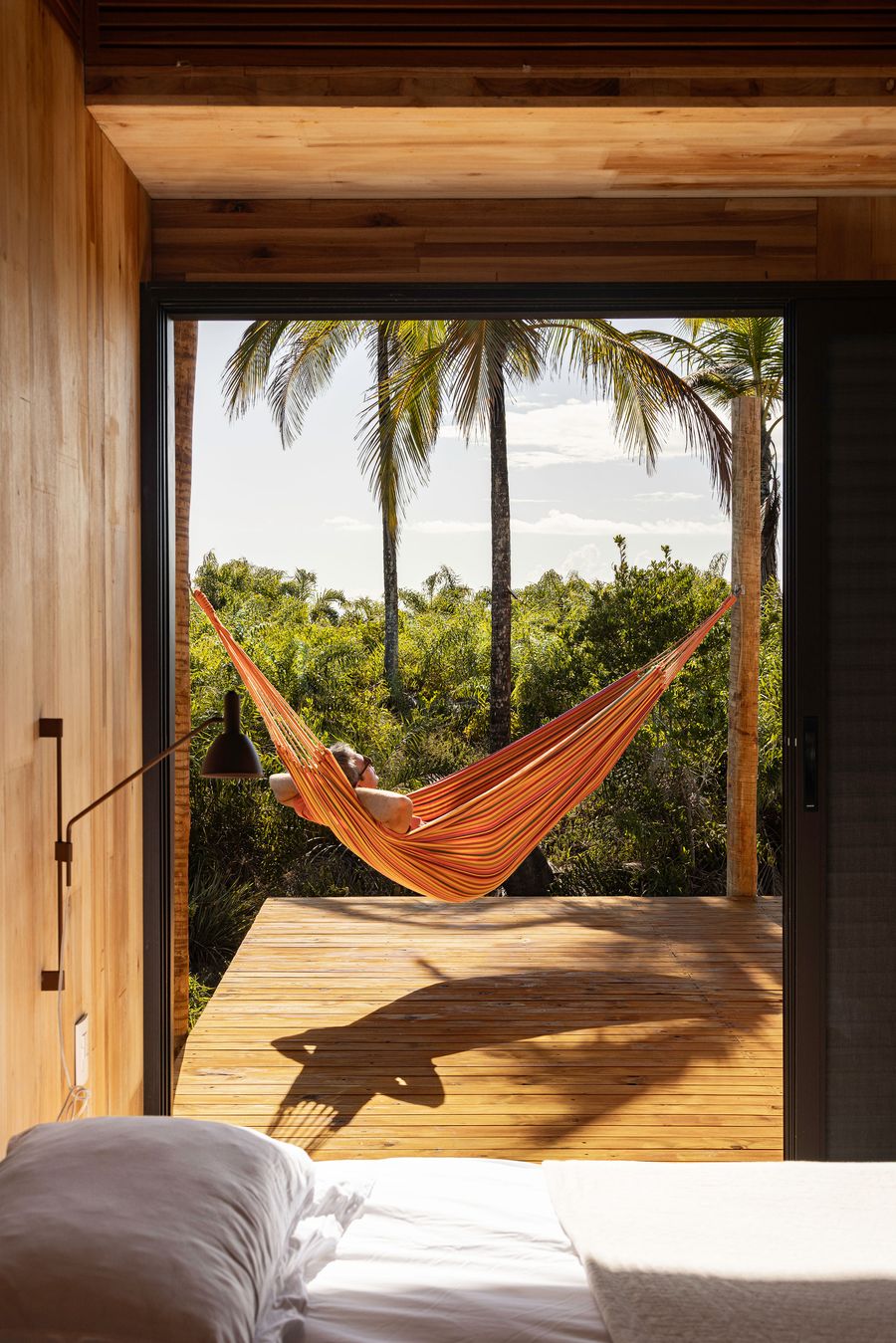
Photography by Joana França.
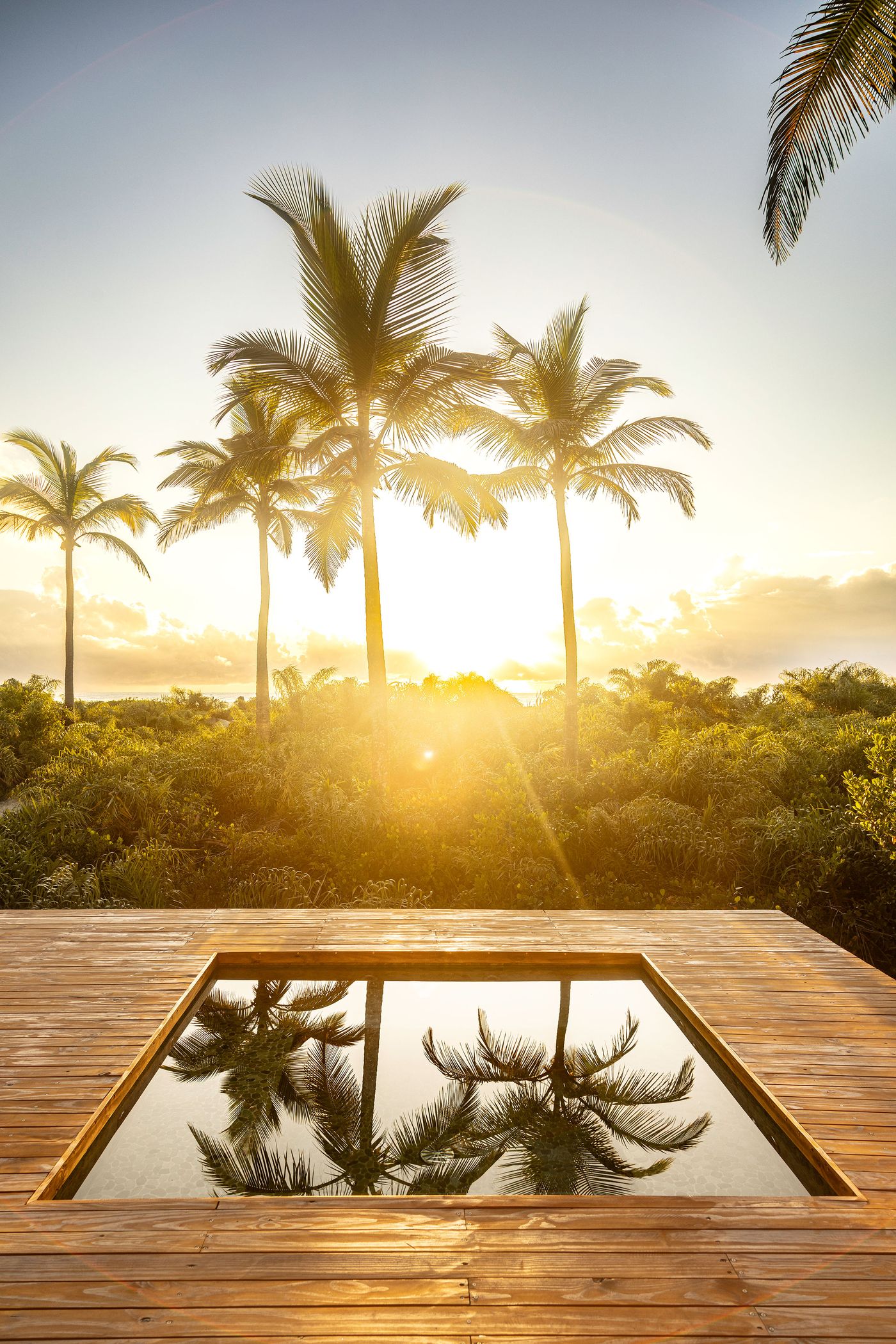
Photography by Joana França.
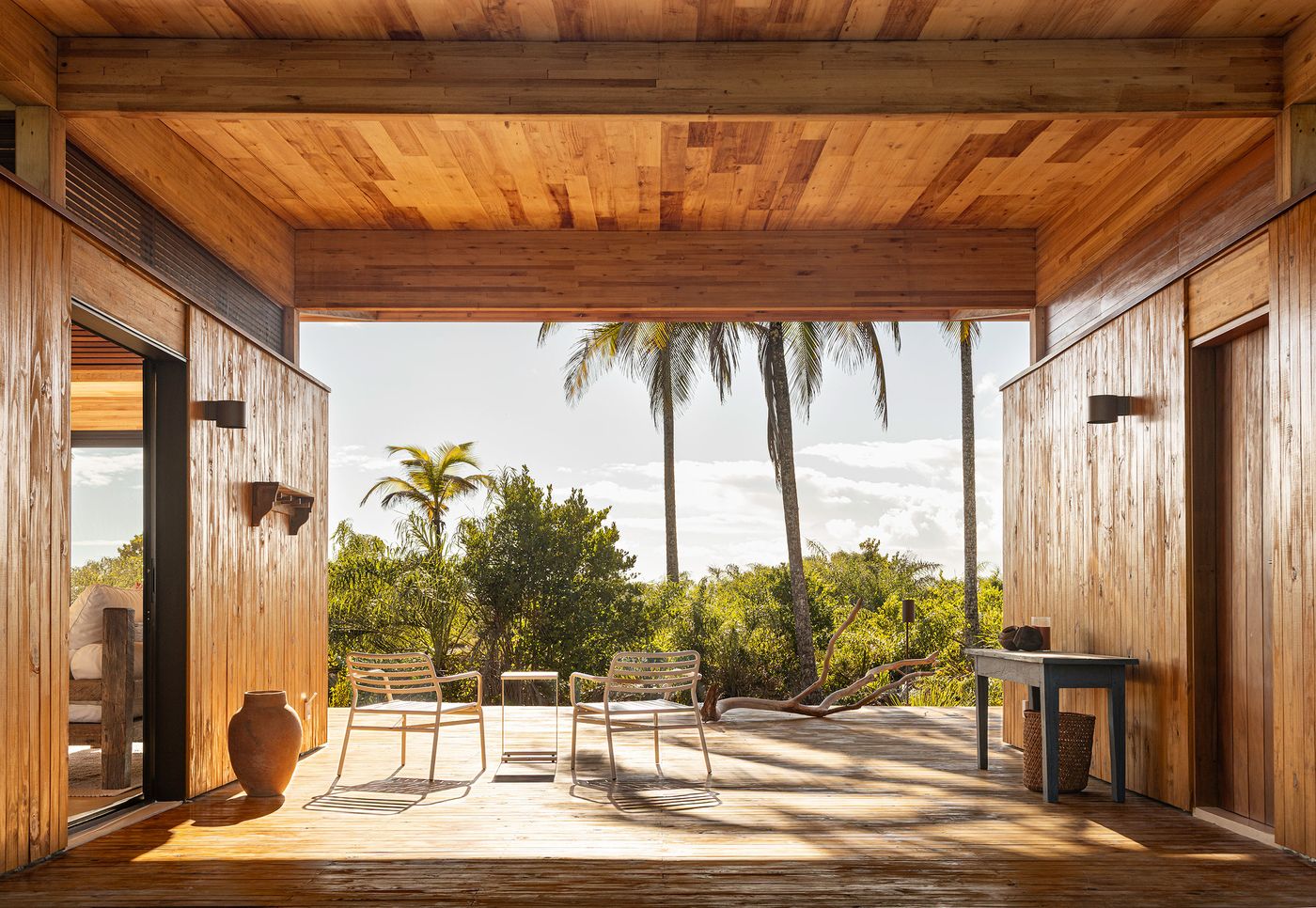
Photography by Joana França.
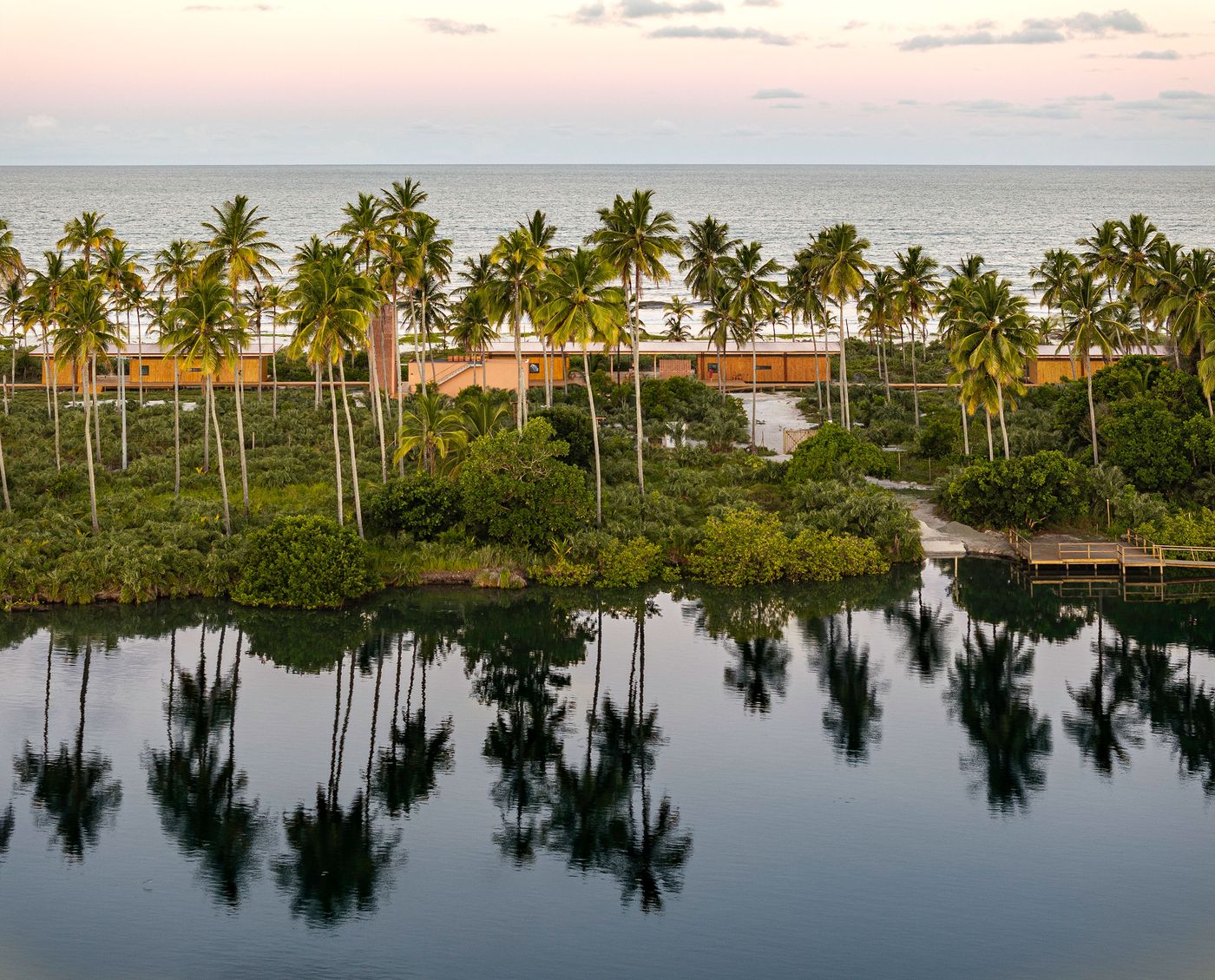
Photography by Joana França.
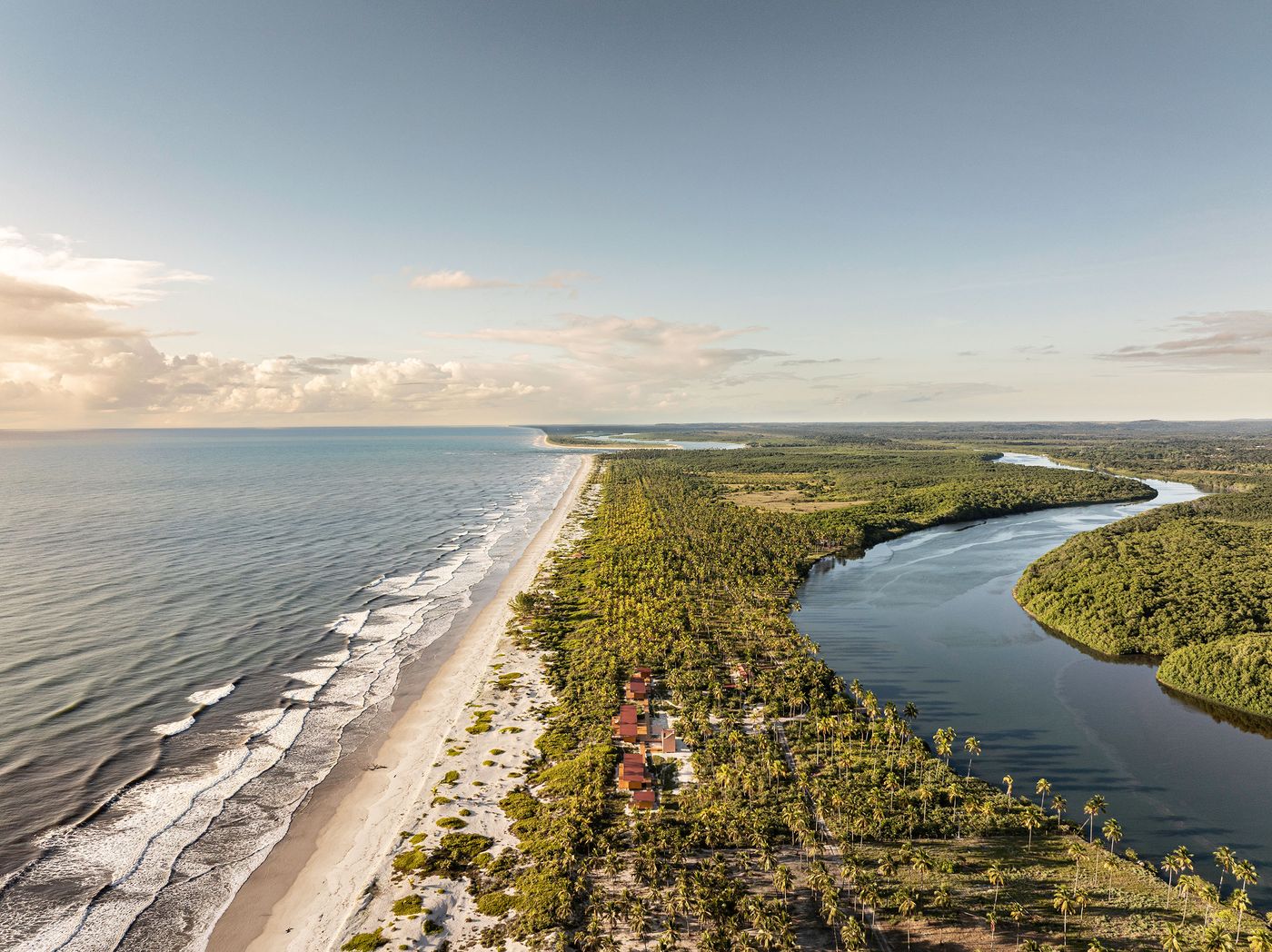
Photography by Joana França.
Developed in collaboration with Crosslam Brasil, a pioneering Brazilian manufacturer of engineered wood, along with construction company Abaeté, UNA barbara e valentim’s "Modular BV" system shifts away from conventional building models toward a more streamlined, precision-made assembly approach. At its core are six standardized, square modules—living room/kitchen, bedroom, studio, utility room, veranda, and garage—each measuring five by five metres. These can be arranged in different configurations depending on the program, terrain, and orientation. Precision-crafted off-site from sustainably sourced eucalyptus and assembled on location, the system significantly reduces construction time and waste while allowing for design flexibility.
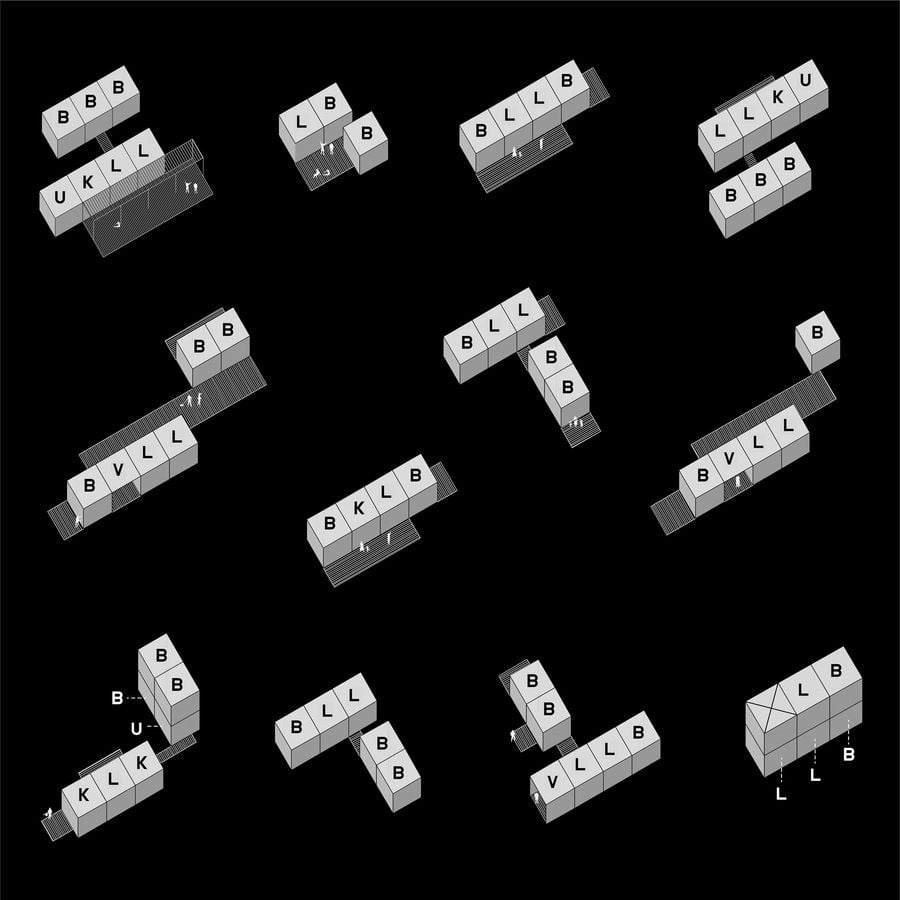
Modular BV system. Layout configurations. © UNA barbara e valentim.
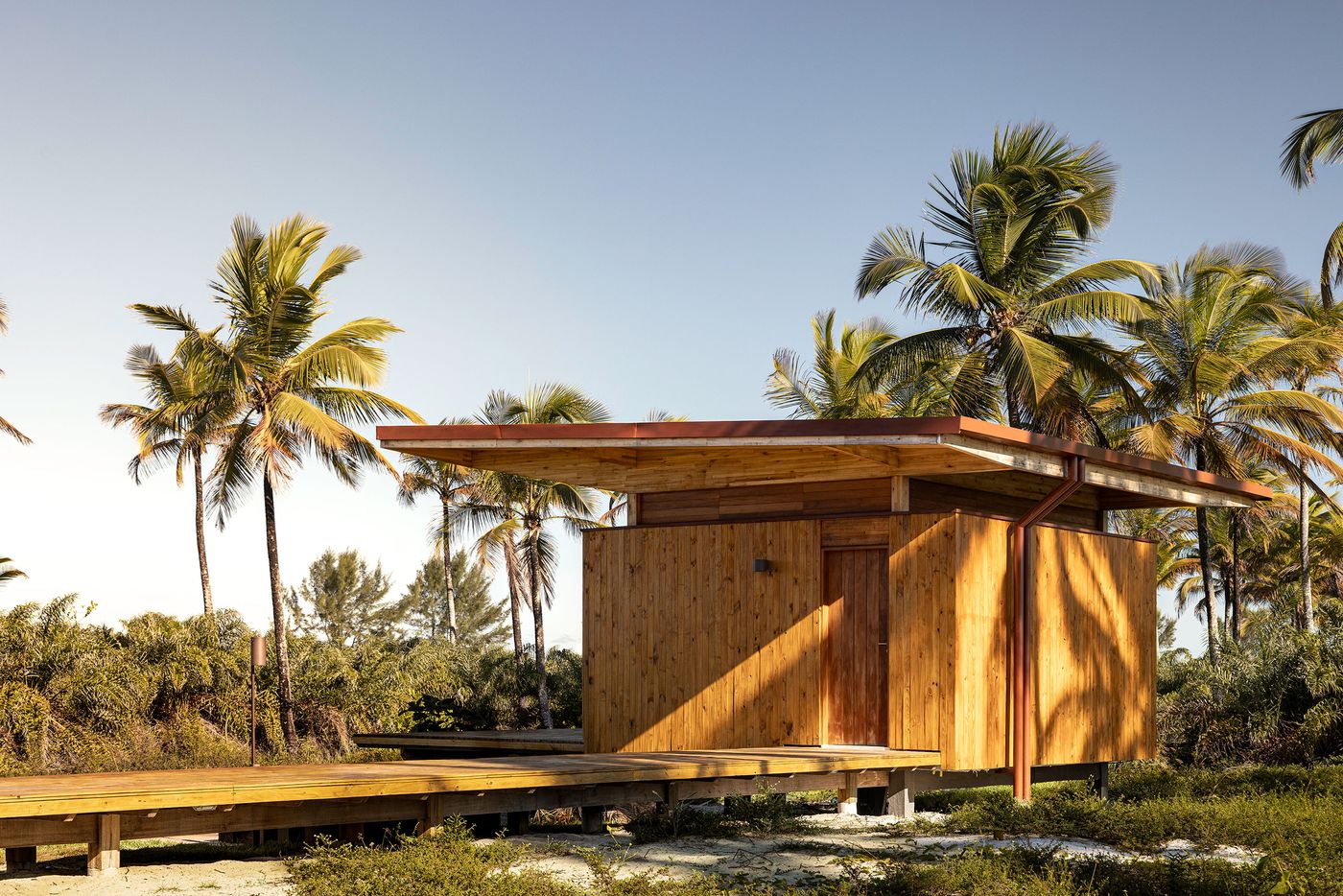
Photography by Joana França.
In this project, aptly named Modular Bahia, the prefabricated modules are configured into three distinct structures, two private residences flanking a communal pavilion, connected via wooden walkways. Slightly elevated on wooden stilts to preserve the site’s native vegetation and natural drainage, the buildings appear to float within the coconut grove, their light footprint minimizing disruption while heightening their connection to the landscape. Composed of open frames and wide overhangs that blur the lines between inside and out, the structure’s slender horizontality mirrors the flatness of the terrain, while its timber cladding dissolves into the rhythm of the palms. Seen from the shoreline, the retreat barely announces itself in any way.
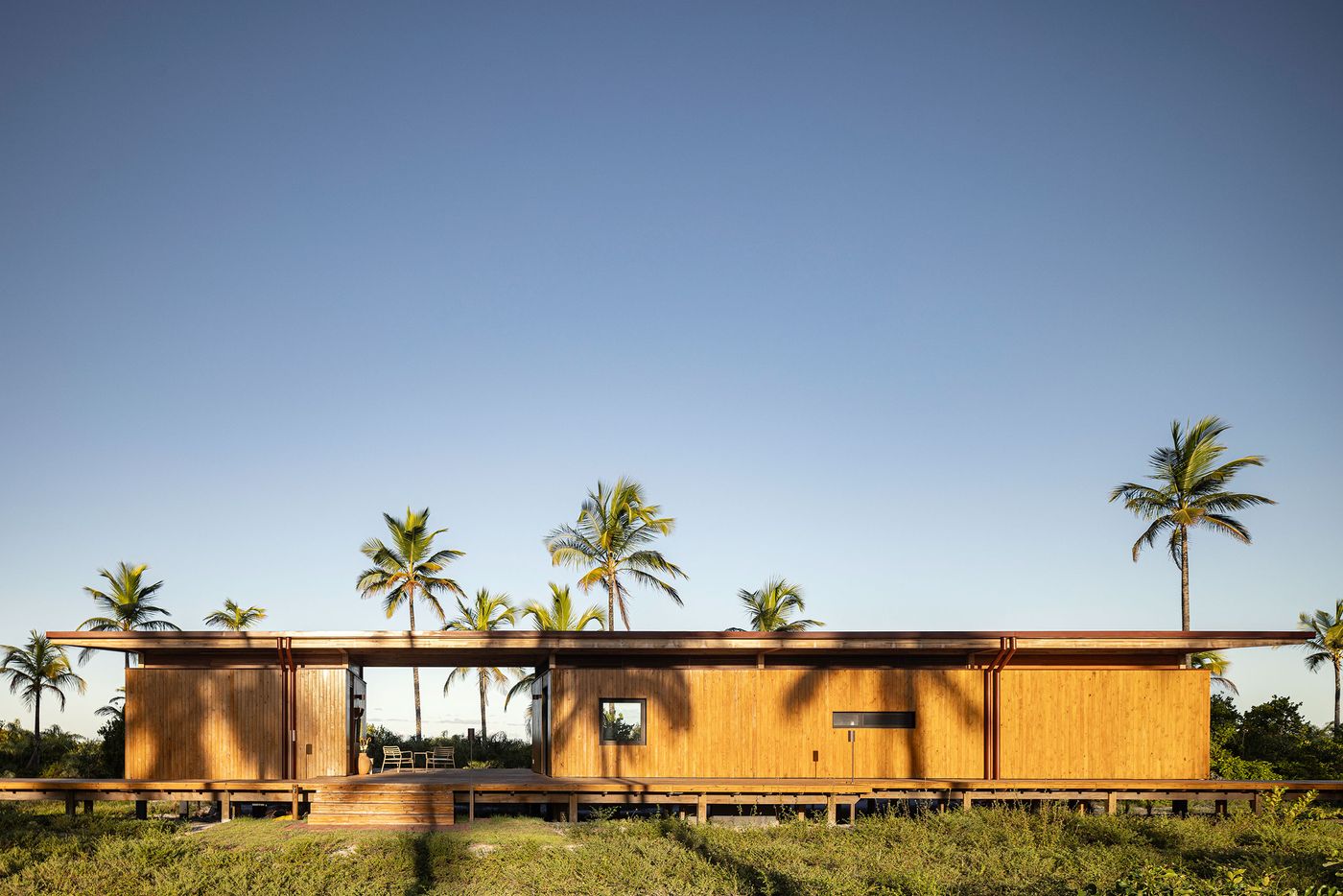
Photography by Joana França.
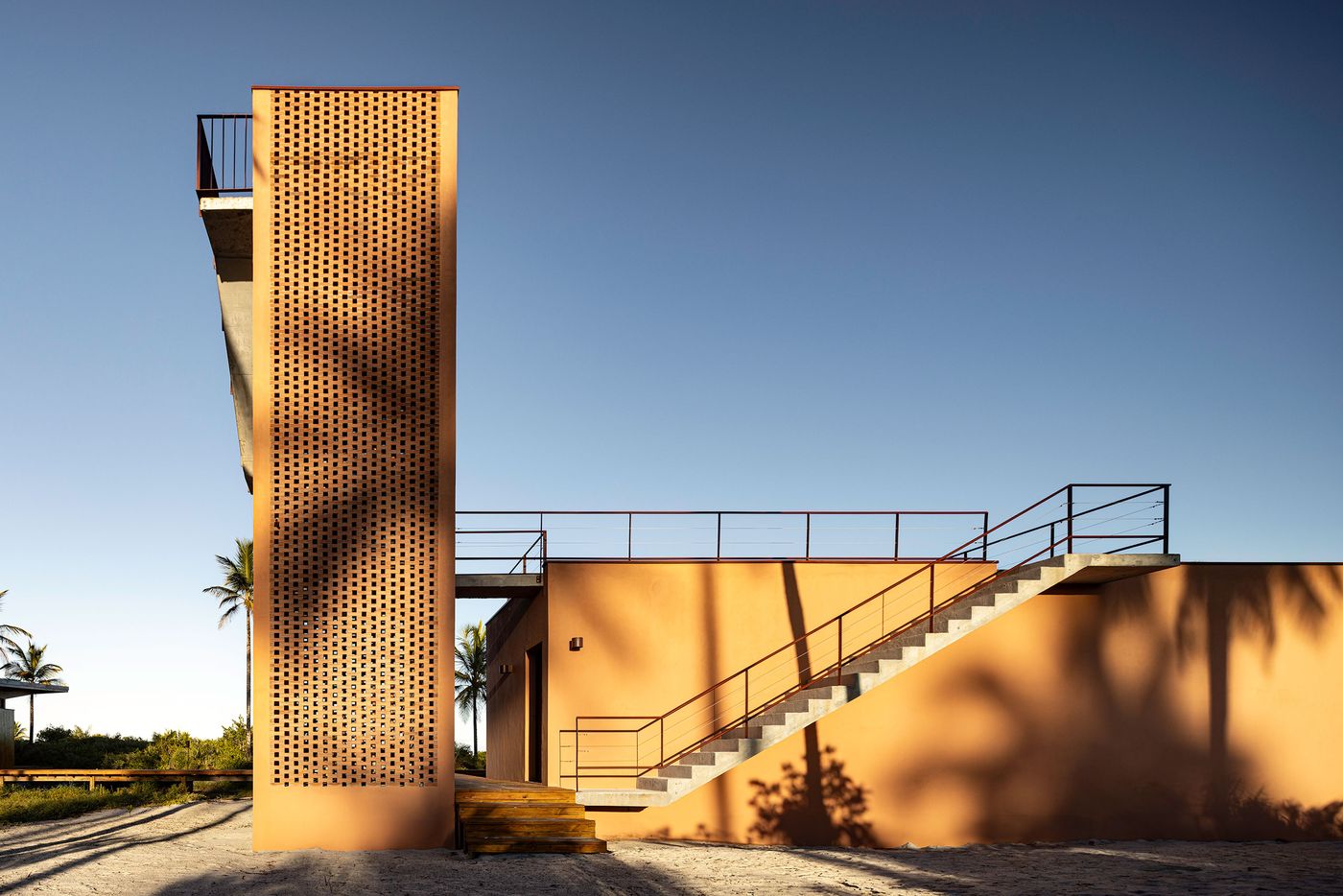
Photography by Joana França.
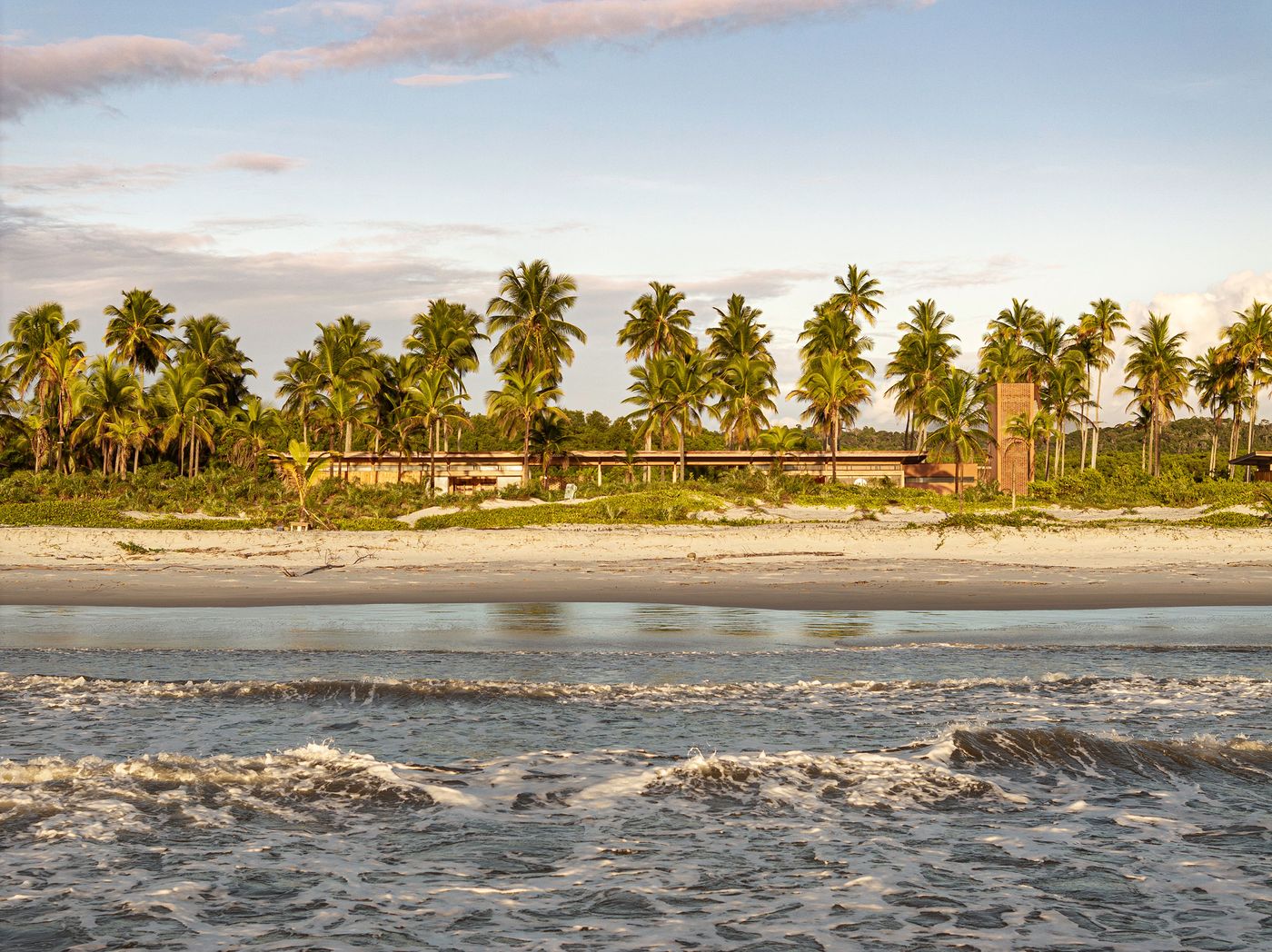
Photography by Joana França.
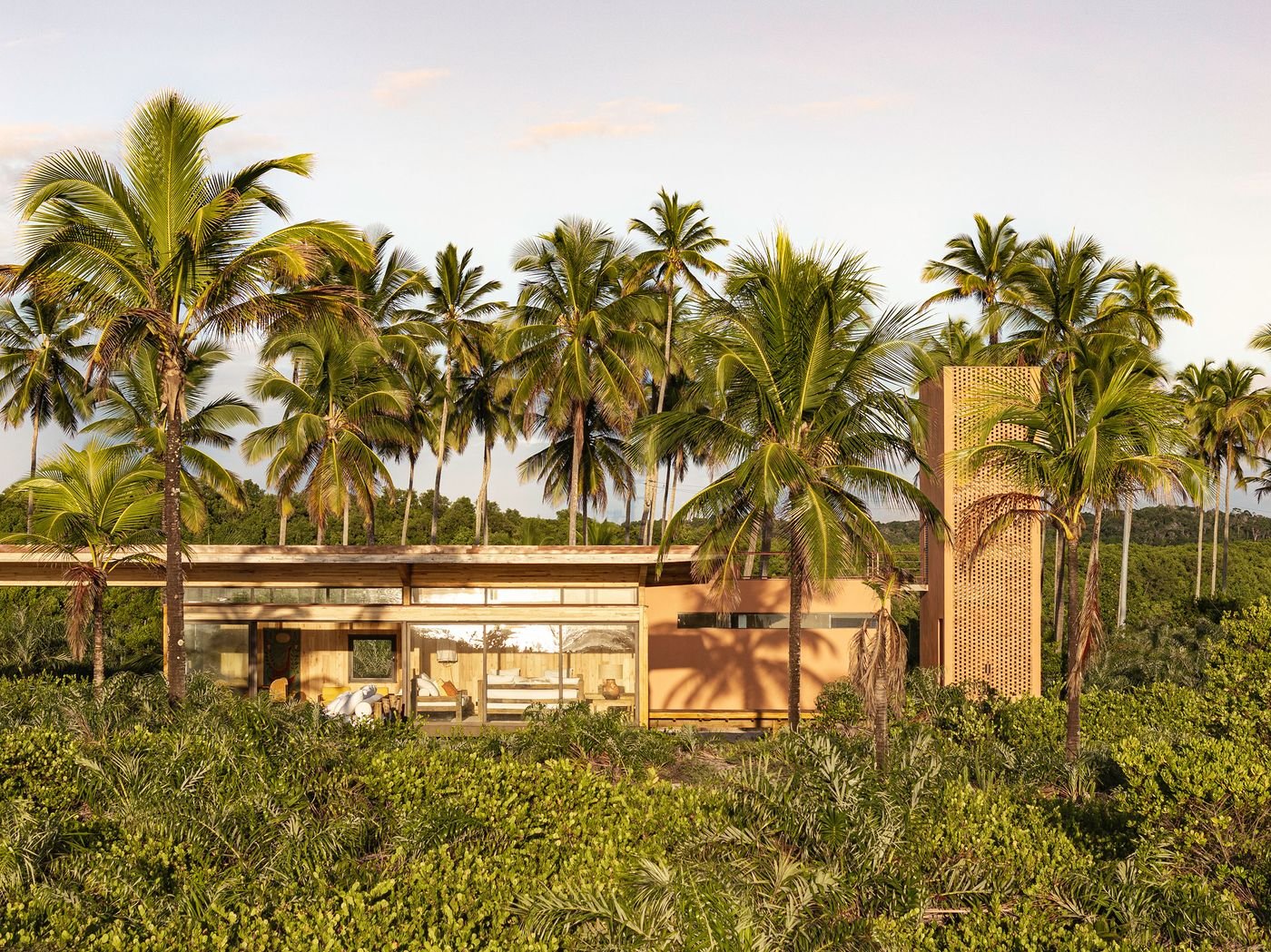
Photography by Joana França.
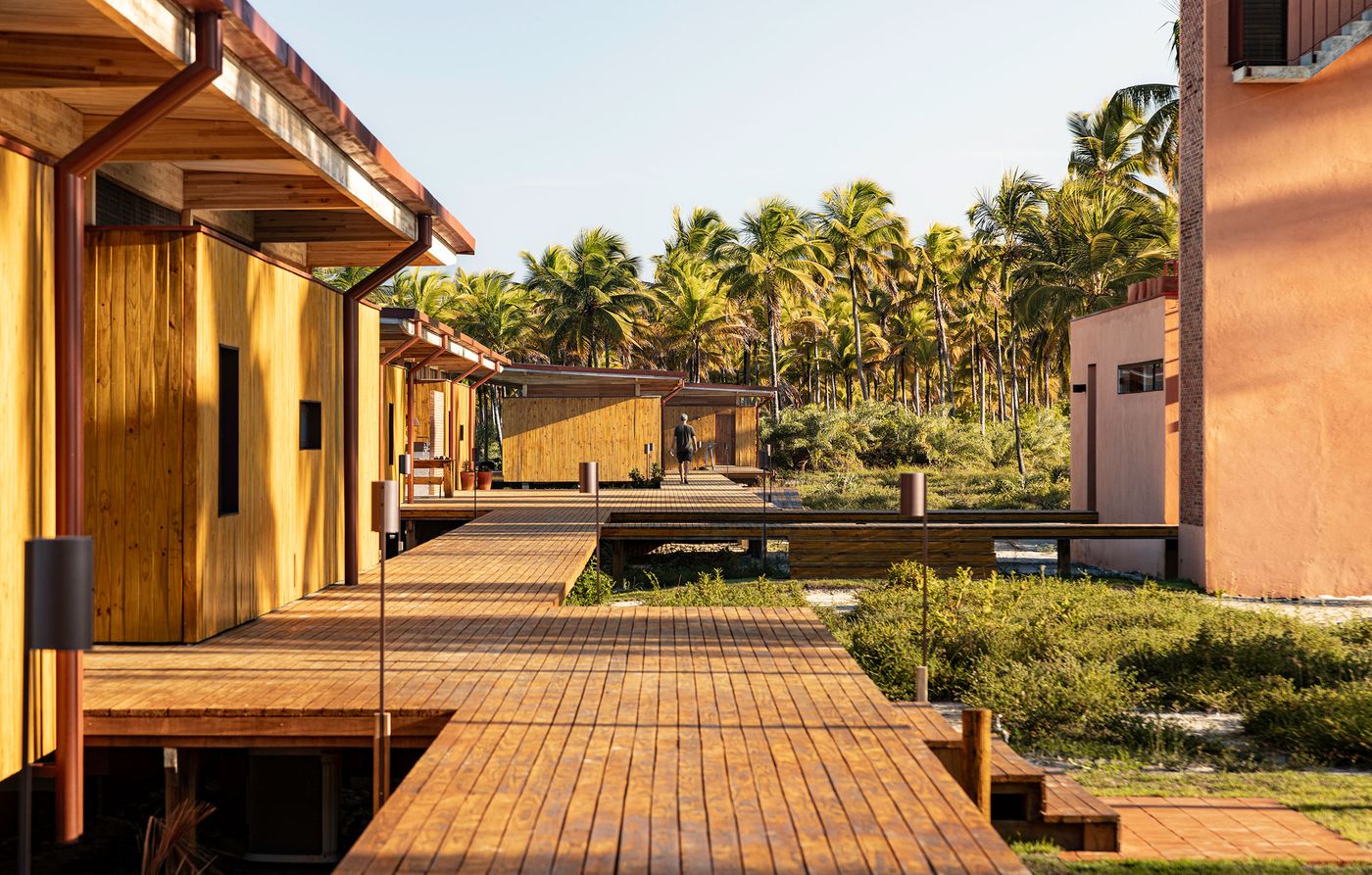
Photography by Joana França.
Inside, the spaces are pared-back yet tactile, defined by a palette of warm, natural materials and filtered light. Walls and ceilings are lined in honey-toned eucalyptus boards, their subtle variations creating texture without ornamentation. Generous sliding glass doors allow for seamless indoor/outdoor living while framing lush views of the surrounding greenery. Furnishings are understated but soulful: rough-hewn timber furniture, woven lampshades and ceramic pendants are mixed with contemporary and vintage designs giving each space a lived-in warmth. The result is a quietly luxurious sensibility somewhere between a beach cabin and a modernist pavilion.
Bioclimatic intelligence remains the project’s true heartbeat. Broad overhangs provide gentle shade from the high noon sun, while elevated floors encourage cooling airflow beneath. Cross-ventilation is orchestrated through windows on opposite walls, augmented by roof shapes that vent rising heat. Rainwater is harvested in hidden tanks and reused, while solar panels power both electrical and hot water systems. A biodigester treats greywater and waste on site, enabling each unit to function autonomously with minimal environmental impact.
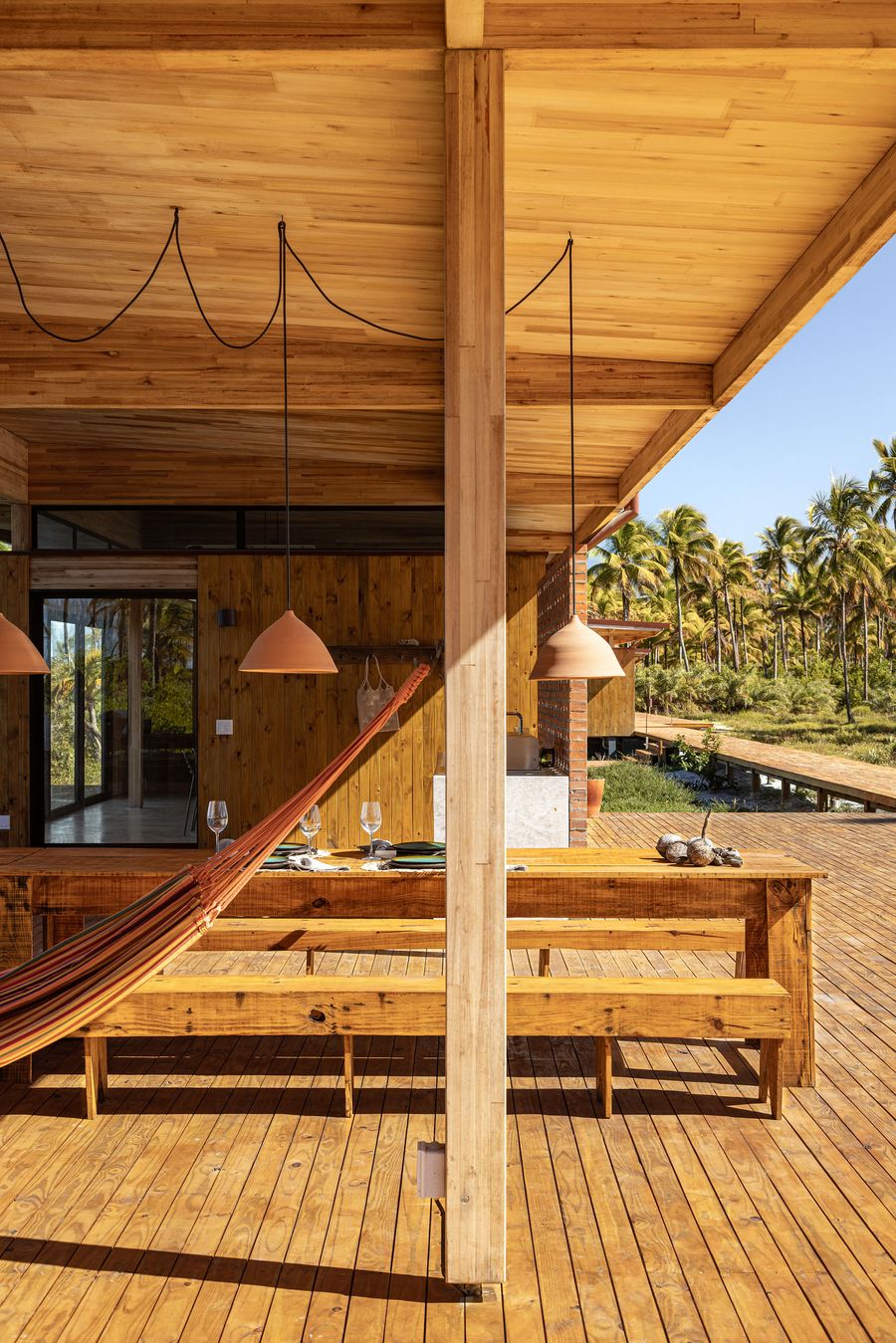
Photography by Joana França.
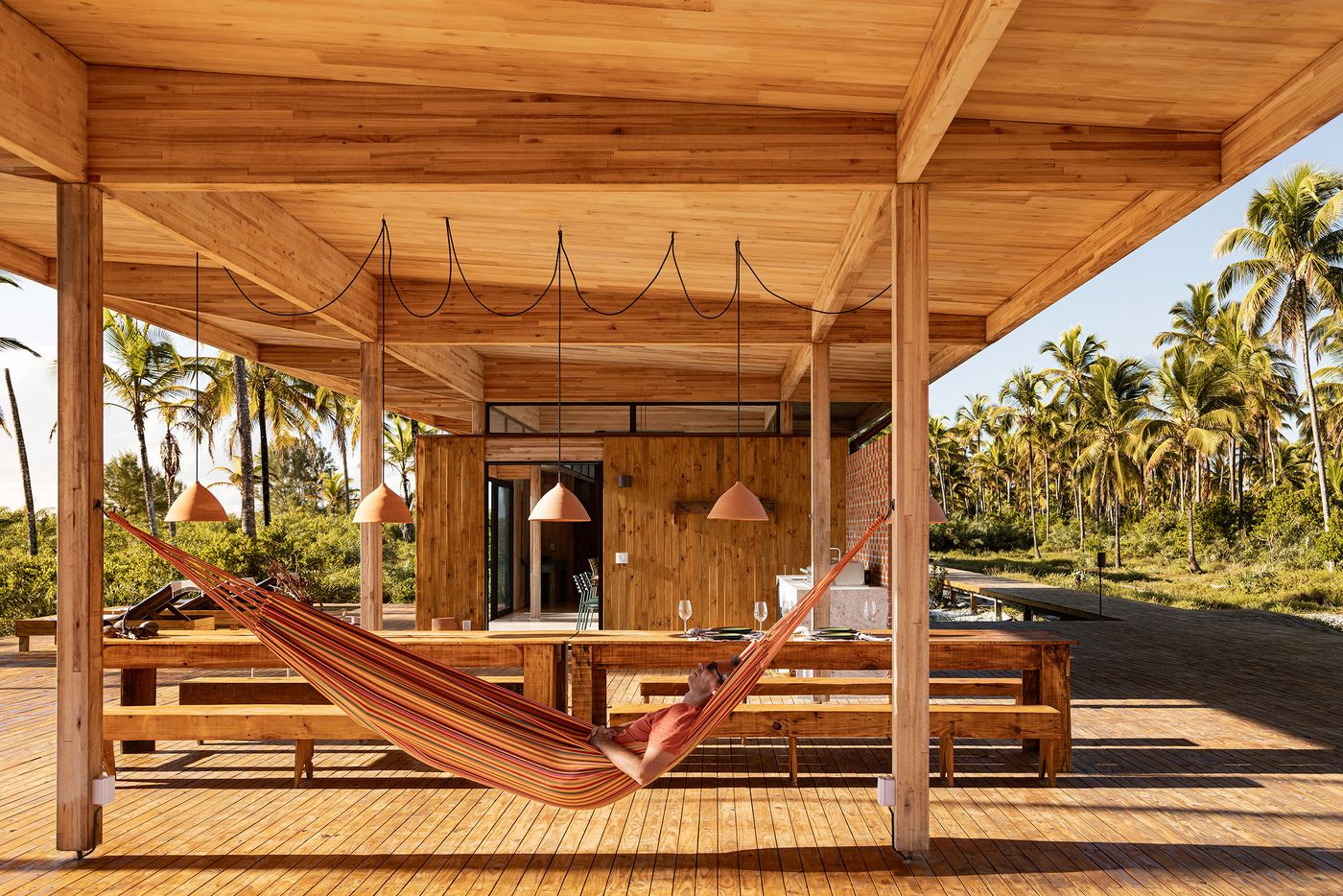
Photography by Joana França.

Photography by Joana França.
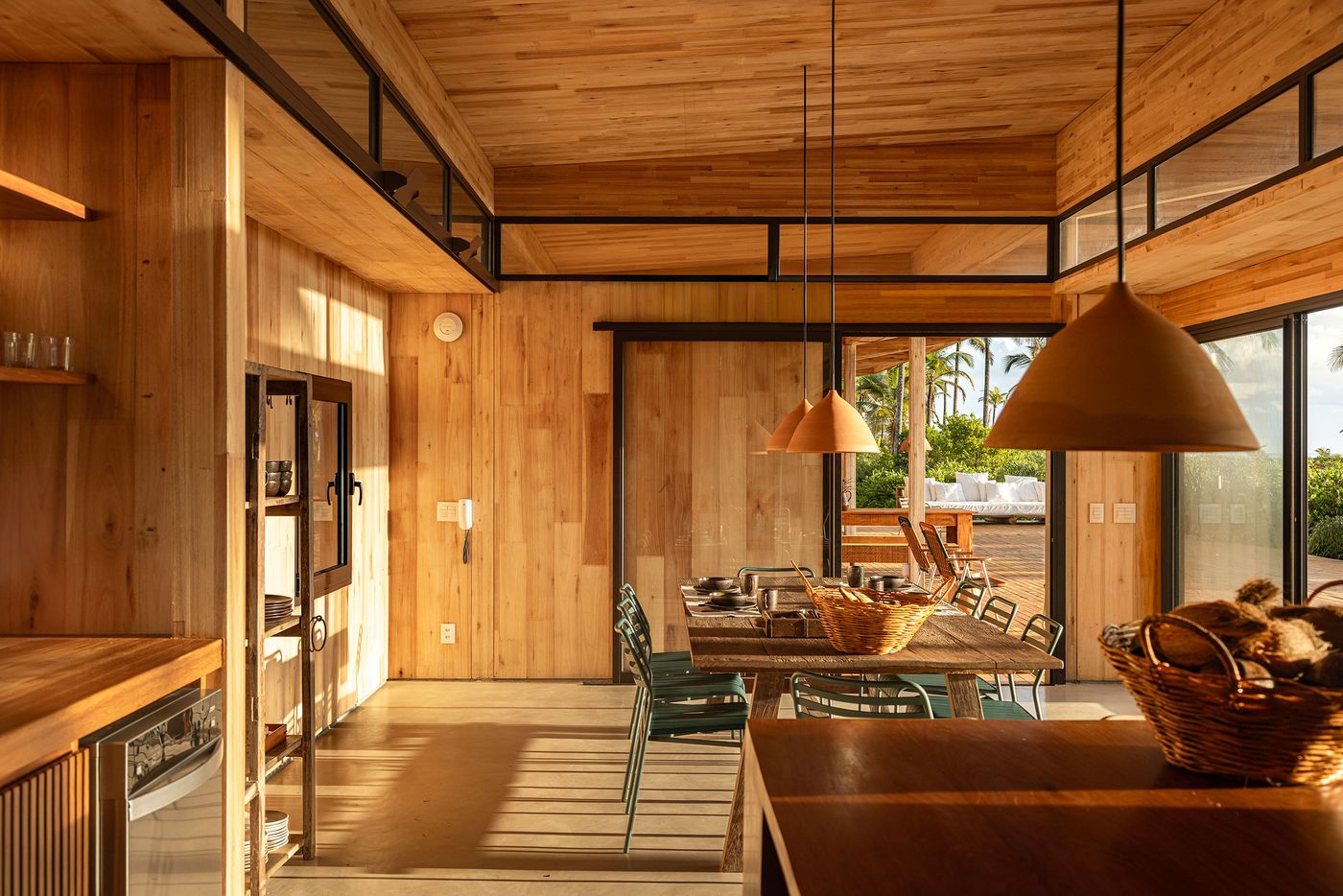
Photography by Joana França.
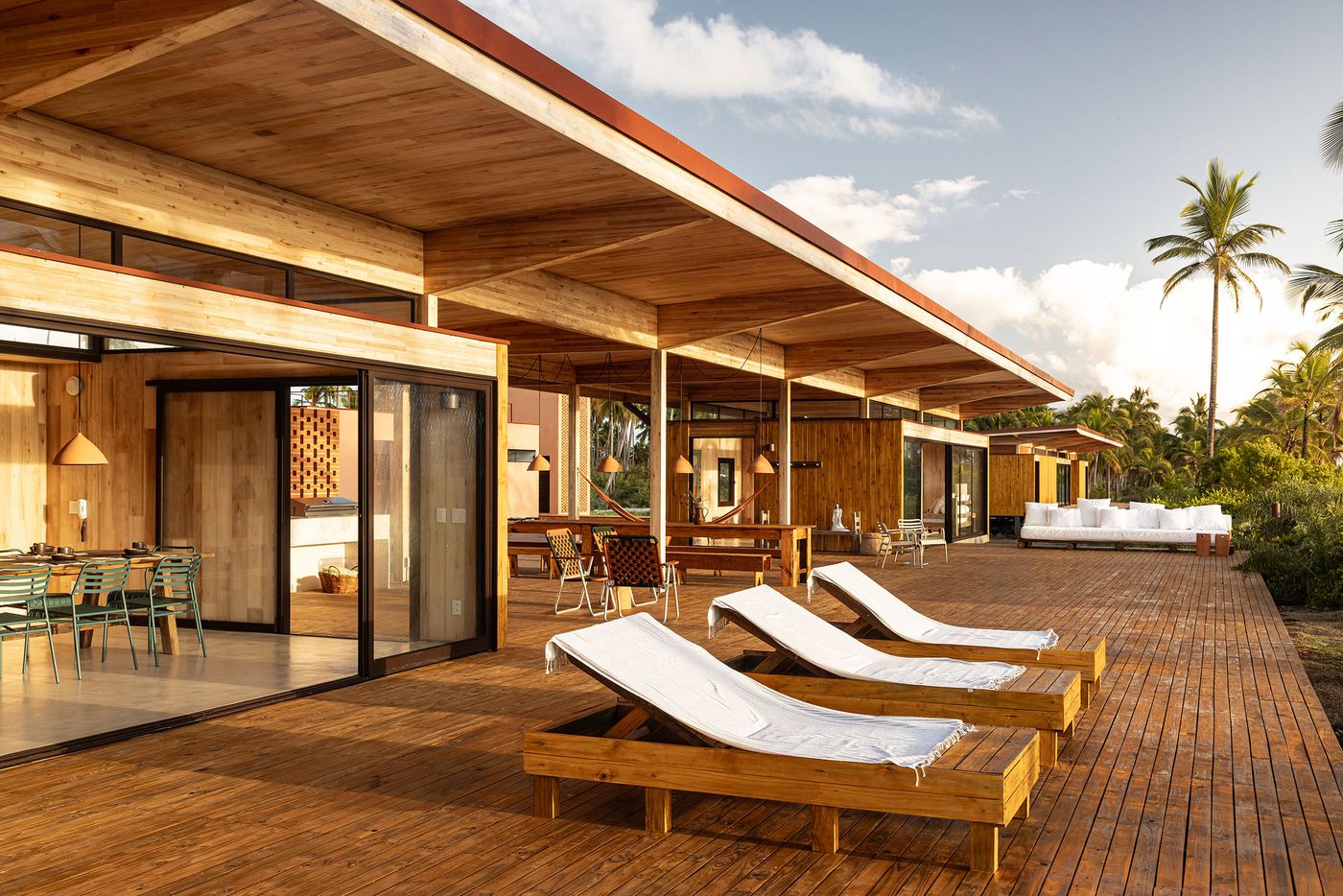
Photography by Joana França.
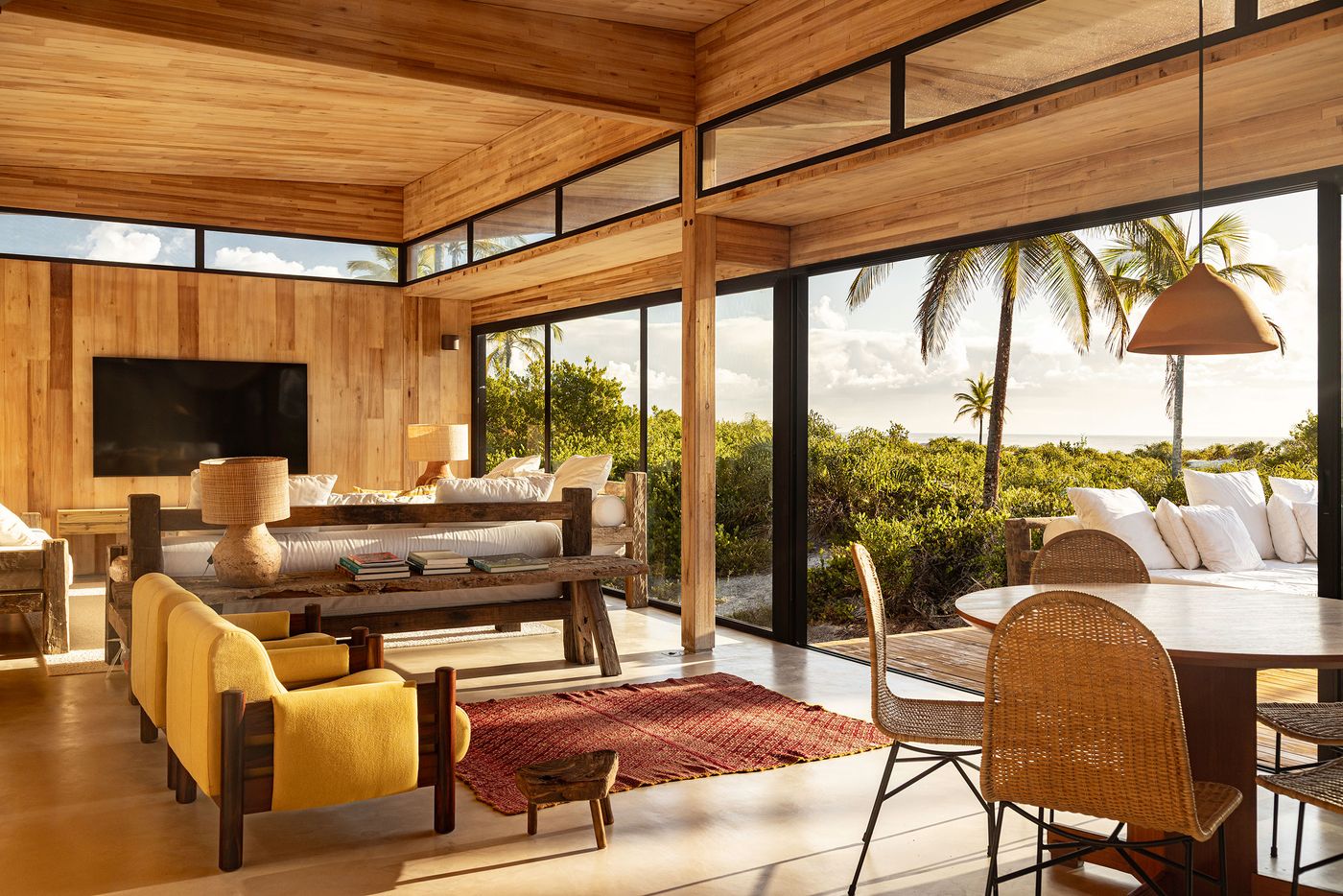
Photography by Joana França.
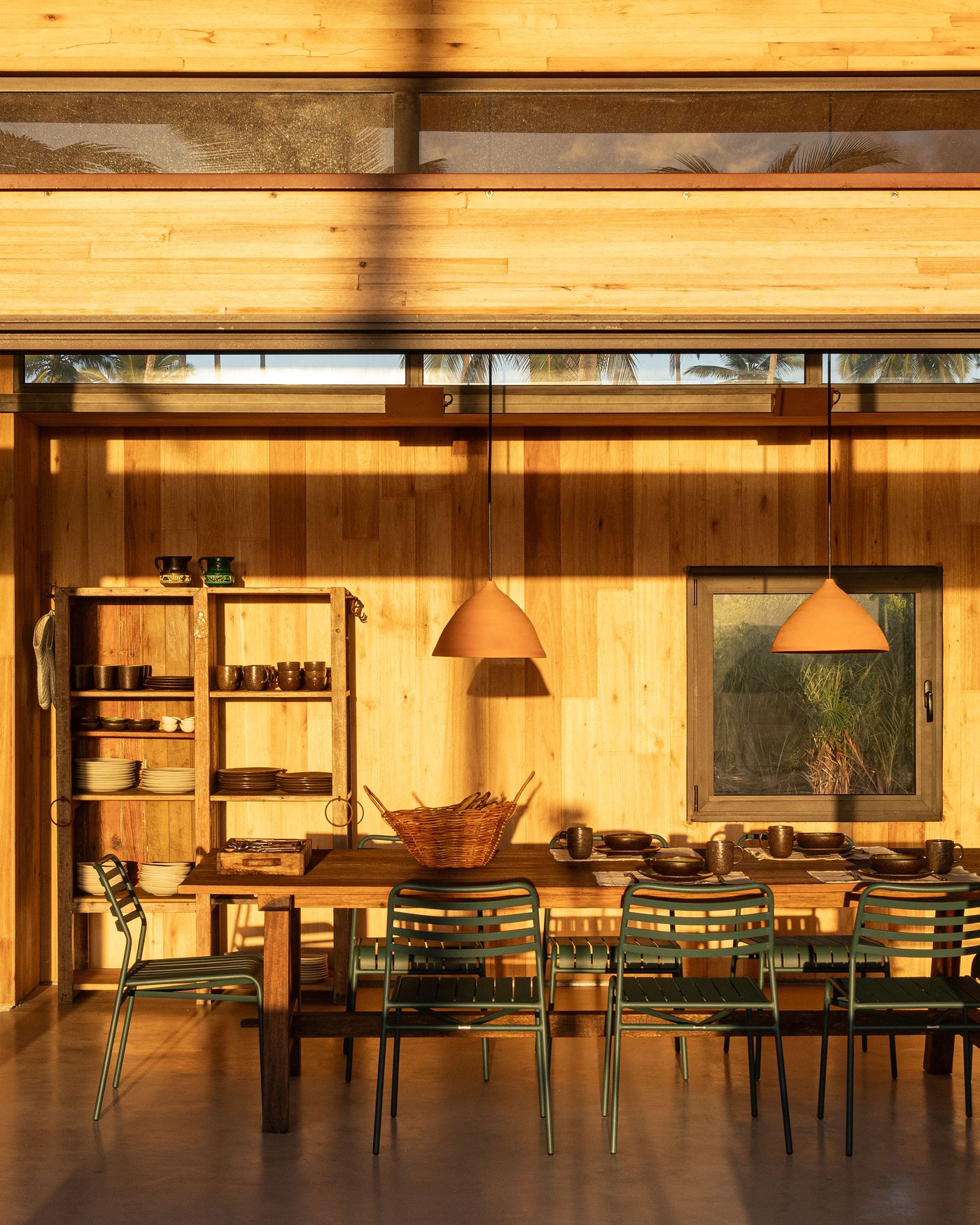
Photography by Joana França.
As a prototype, Modular Bahia gestures toward a future where architectural ambition and environmental ethics aren’t at odds, where industrialized processes can serve local contexts and climate responsiveness. As architect Fernanda Barbara puts it, the system represents “a natural evolution of engineered wood use, aligned with best practices being tested worldwide.” In a region long prized for its natural beauty, the project offers a new kind of luxury, one defined not by excess, but by restraint, adaptability, and a deep sense of place.
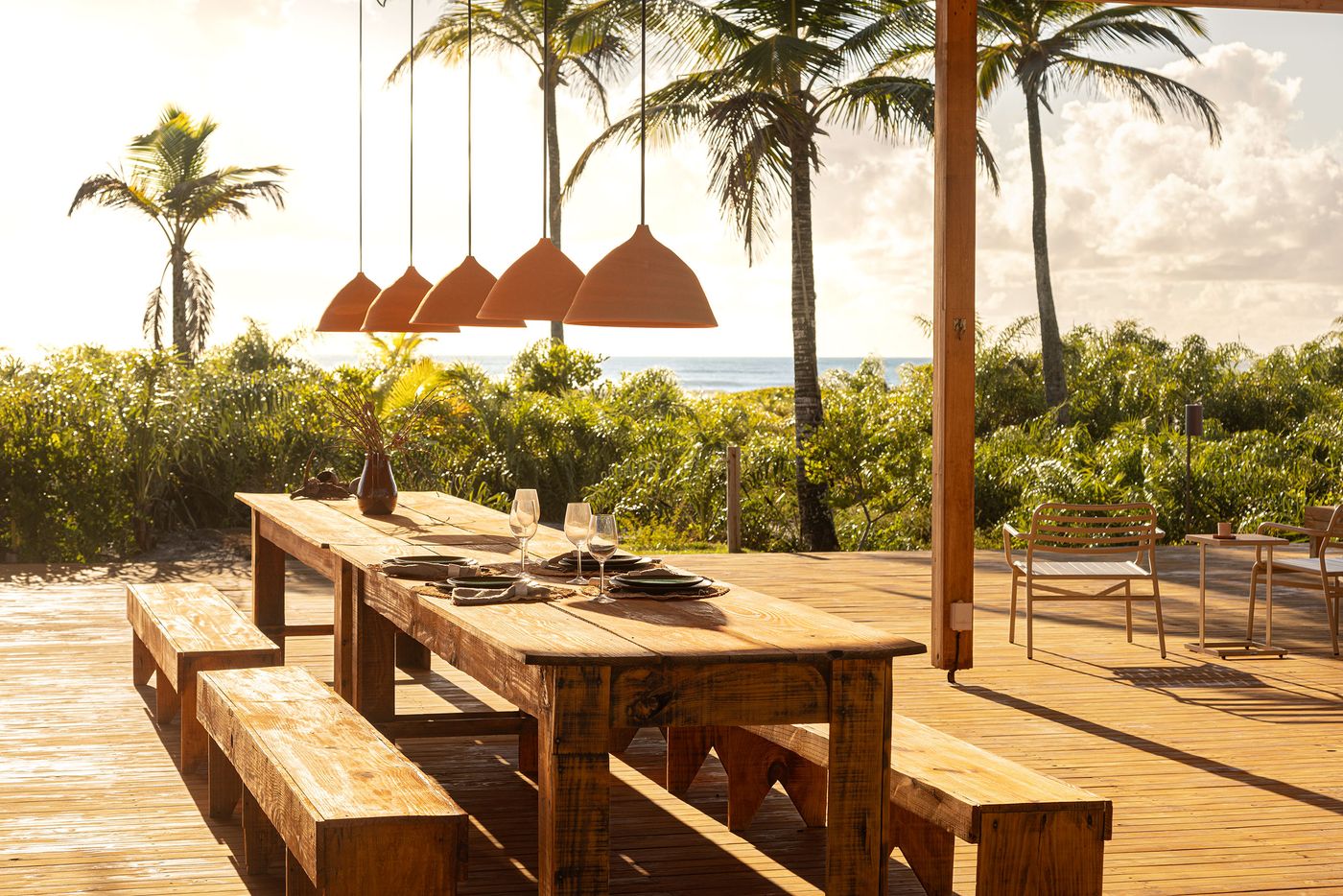
Photography by Joana França.
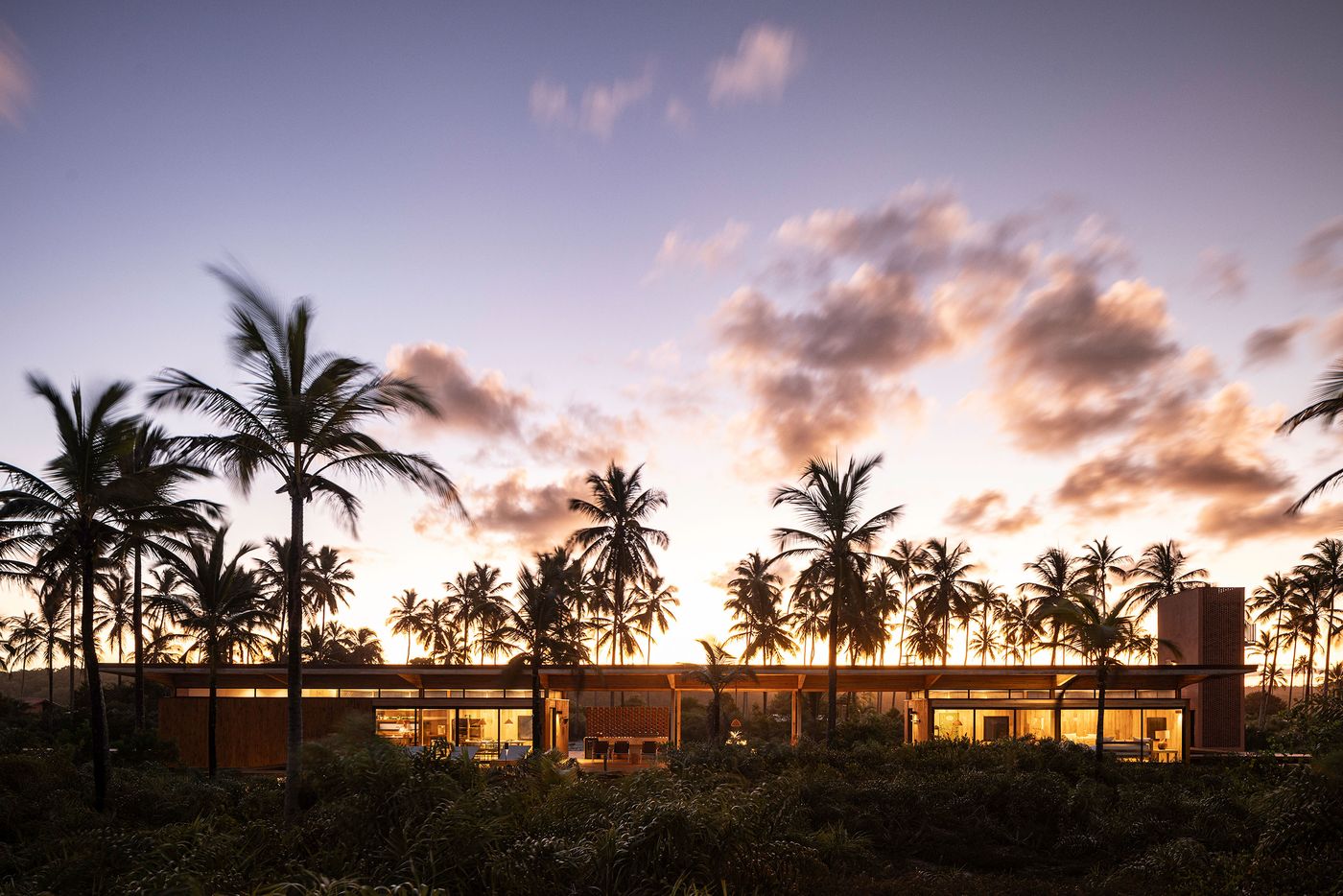
Photography by Joana França.
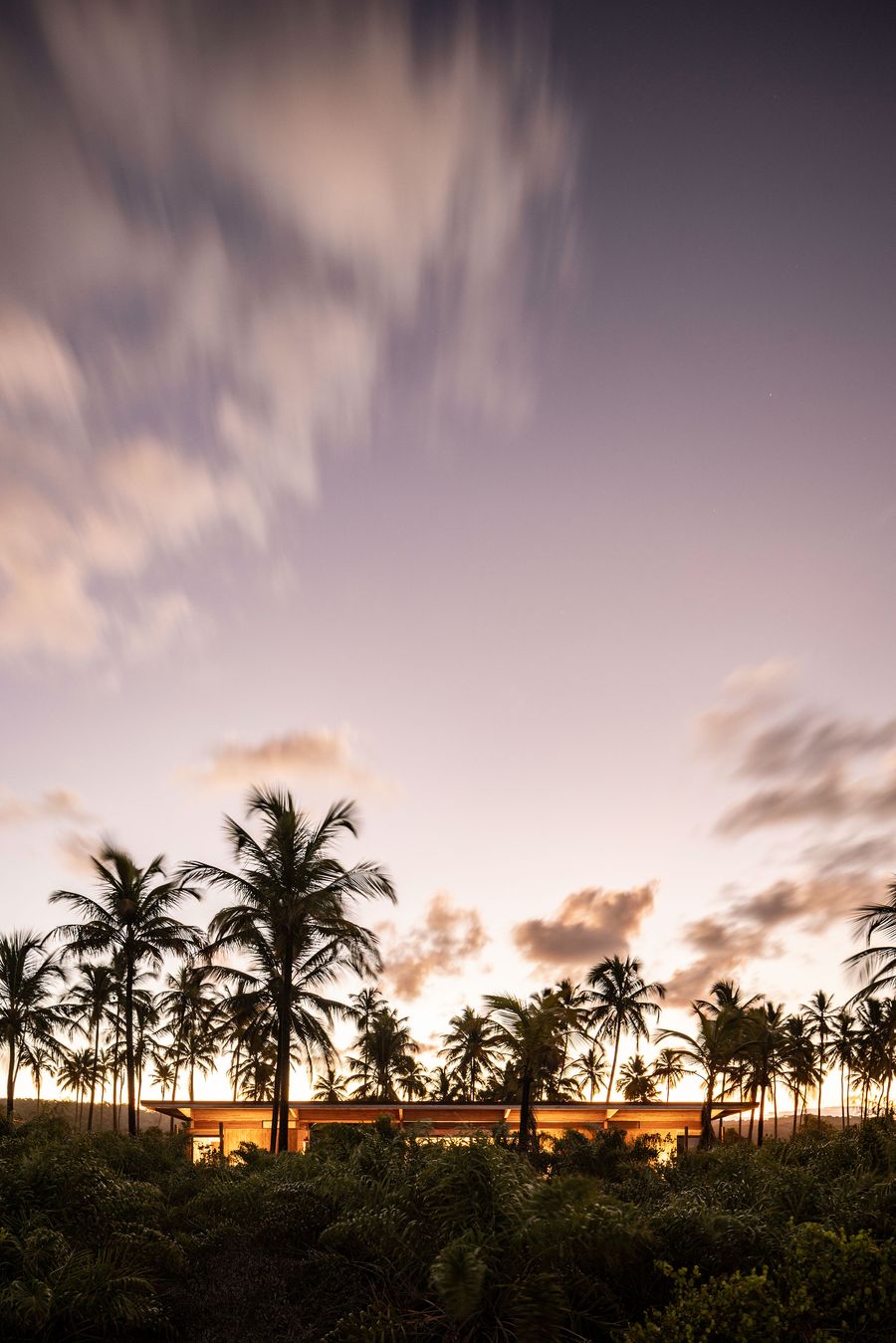
Photography by Joana França.
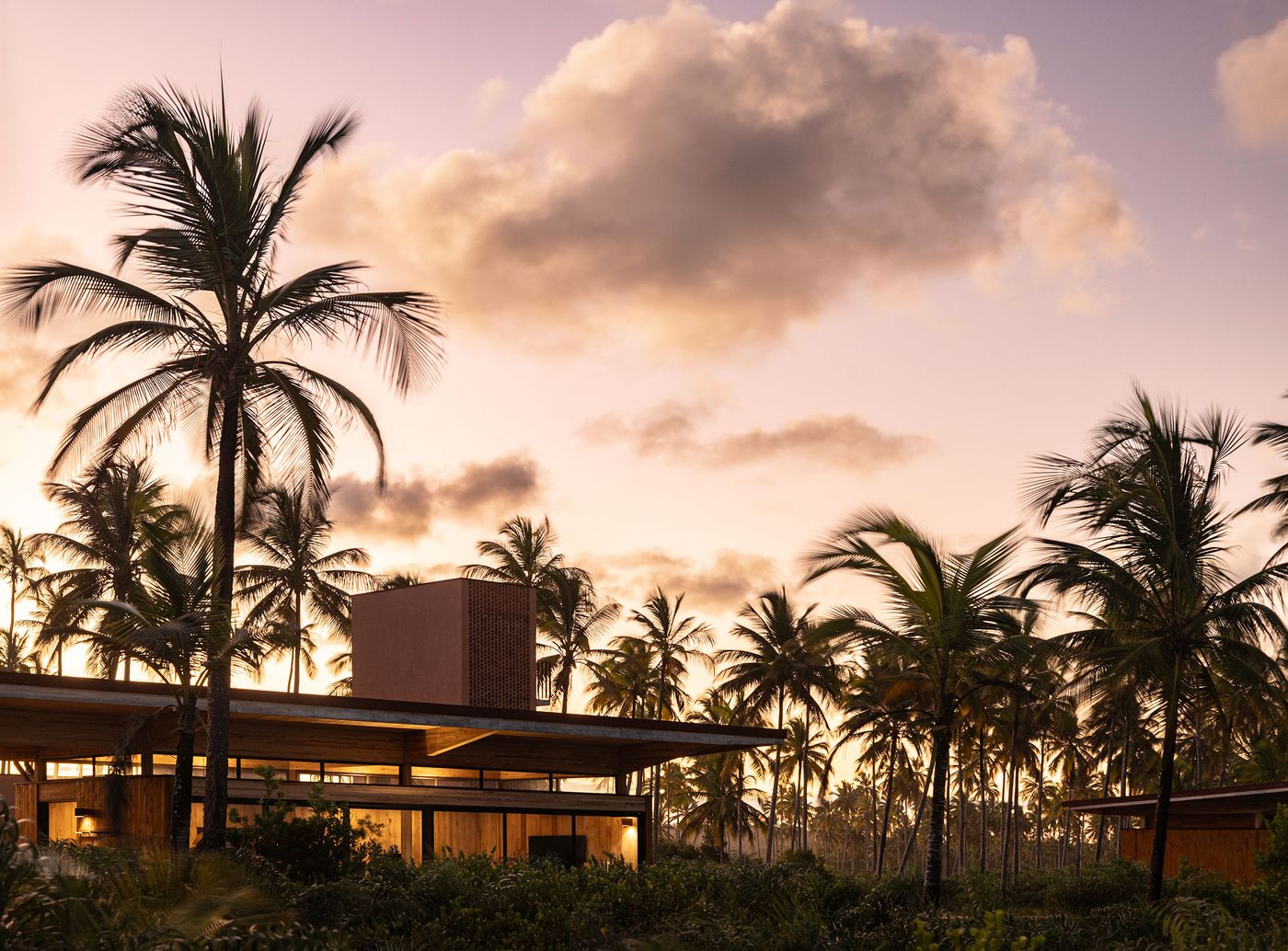
Photography by Joana França.
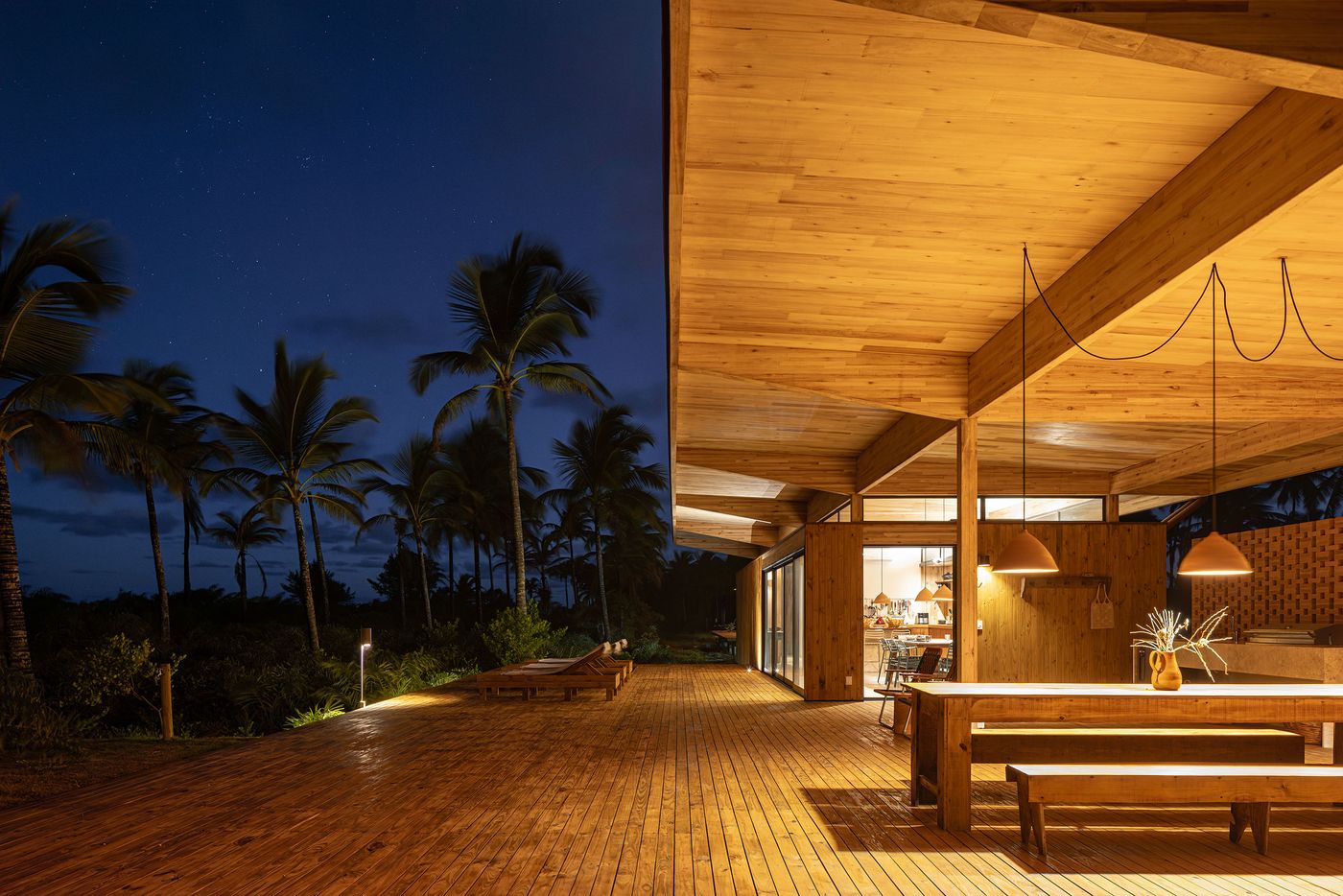
Photography by Joana França.
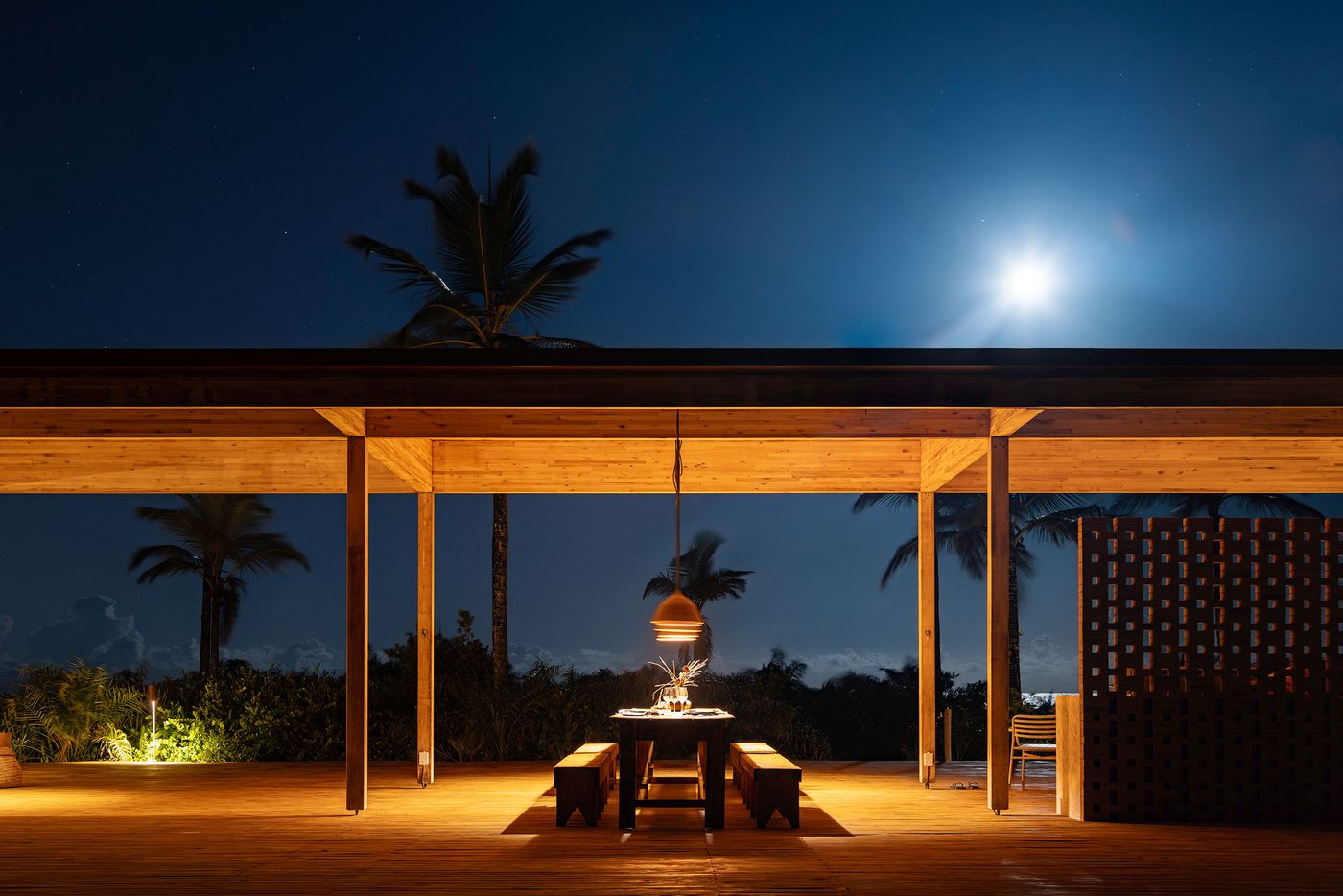
Photography by Joana França.
